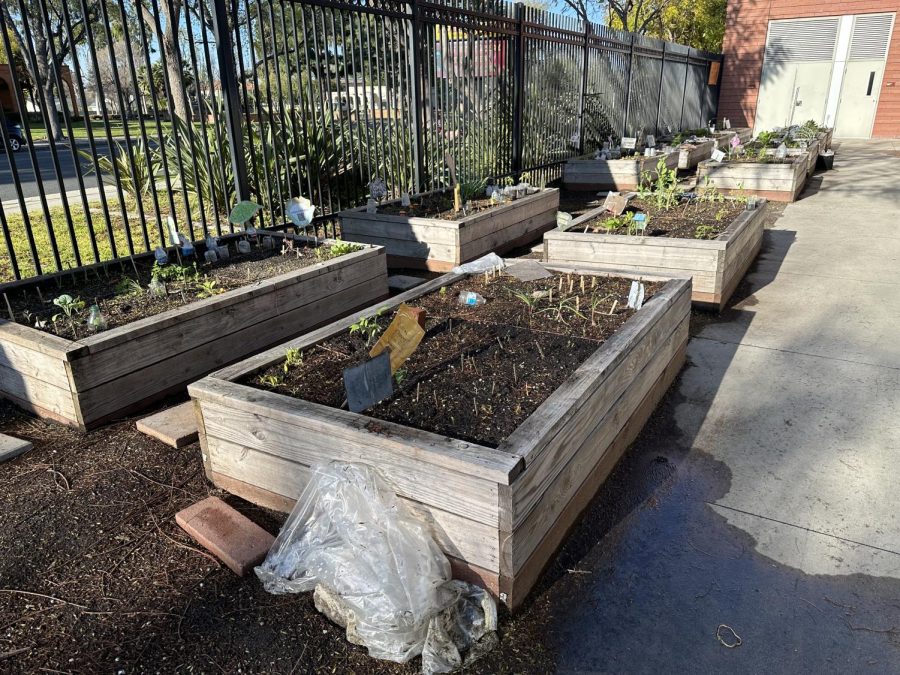APES Gardening
March 31, 2023
AP Environmental Science (APES) gardening is in progress this school year and students could not be more excited! The APES gardening program occurs in the second semester of the school year and is one of the flagship activities of the AP classes.
First, students form their garden groups, whom they will garden with for the rest of the year. The groups then decide which seeds they would like to plant in their garden boxes. They can pick a variety of fruit and vegetable seeds. The seeds chosen are usually vegetables that can grow in a fast period of time. After the seeds are selected, students move on to the garden boxes, which can be found behind the science building, on the south side of the South Gym.
During the first week of gardening, students clean up their garden plots. They pick out the weeds and make sure there are no old plants still growing. After the garden is clean, the APES students finally get to plant their seeds. After planting the seeds, students usually take time out of their APES period to water their seeds at lunch.
So what does APES teacher Ms. Neda Kuso think about this special part of APES?
“My favorite part is watching students work together as a family to go through the entire process of seed to table,” Ms. Kuso stated. “They go through the initial proud parent moment when they see their first sprout and then their first harvest and then their first family meal. This project involves not only concepts in environmental science concepts but also communication skills and learning how to get along with others over an extended amount of time (about 20 weeks).”
“I love maintaining the garden, especially watering the plants,” said APES student junior Kobe Biarotte.
After the seeds sprout and grow into fruits and vegetables, the APES classes will have weekly potlucks every Friday. Each group will cook a meal using an item from their garden. This year, the APES teachers decided to add some new seeds to keep things interesting.
“This year, we bought “unique” seeds—ones you wouldn’t normally see at the grocery stores such as dragon’s egg cucumber, lemon spice jalapeno, pink celery, cinnamon basil, and burgundy okra,” said Ms. Kuso.
The growth of seeds depends on seeds, the fastest seeds tend to be lettuce and arugula.
APES has become one of the most popular AP courses at Arcadia High School, with the administrators adding two new APES teachers, in just the past two years. The gardening program is definitely one of the factors for its growing popularity.

